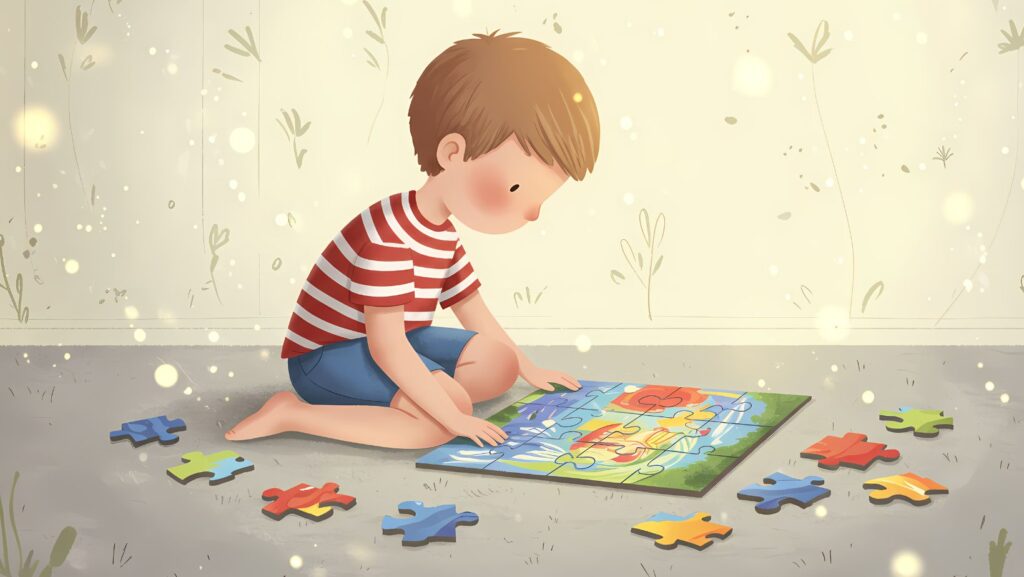Watching a child grow is like witnessing a tiny seed sprout into a flourishing plant. Every stage of their development—emotional, cognitive, and physical—is filled with wonder, challenges, and opportunities. As a parent or caregiver, your role is both inspiring and essential. Supporting your child’s development doesn’t mean doing everything for them; it means creating an environment where curiosity, confidence, and creativity can thrive.
Foster Emotional Intelligence Early
Emotional intelligence is the foundation for healthy relationships and self-awareness. Encourage your child to name and express their feelings in words. Ask questions like, “How did that make you feel?” or “What can we do to make this better?” Validating their emotions shows that feelings are normal and manageable. Role-playing simple social situations can help them practice empathy, sharing, and conflict resolution. For pre-teens, this is also a good time to talk about changes in their body, such as choosing their first bra, which can boost confidence and self-esteem. These small, intentional moments can have a lasting impact on how your child navigates the world.
Encourage Curiosity Through Play
Play is not just a break from learning—it is learning itself. Open-ended toys like building blocks, art supplies, or puzzles stimulate problem-solving skills and imagination. Outdoor activities, such as nature walks or scavenger hunts, allow children to explore cause and effect, observe patterns, and develop motor skills. Even simple household activities like cooking together or gardening can become mini-lessons in science, math, and teamwork. The key is to let your child take the lead and explore at their own pace.
Support Cognitive Growth
Children absorb information like sponges, but structured guidance helps shape their understanding. Reading aloud daily enhances vocabulary, comprehension, and imagination. Ask open-ended questions about the stories you read to spark critical thinking: “Why do you think the character did that?” or “What would you have done differently?” Encourage curiosity about the world around them—visit museums, explore cultural events, or experiment with science kits. Remember, it’s not about rushing milestones but offering experiences that expand their knowledge and thinking abilities.
Build Healthy Habits
Physical development is intertwined with cognitive and emotional growth. Encourage regular physical activity suited to your child’s age—whether it’s biking, dancing, or simply running around in the park. Balanced nutrition, sufficient sleep, and consistent routines provide the stability children need to thrive. Healthy habits also teach responsibility and self-care, lessons that will serve them for a lifetime.
Promote Independence and Problem-Solving
Children grow most when they are allowed to try, fail, and succeed on their own. Provide opportunities for decision-making, like letting them choose clothes, meals, or weekend activities. When they encounter challenges, guide rather than solve the problem for them. Ask questions like, “What do you think we could try?”

This builds confidence, resilience, and the understanding that mistakes are a natural part of learning.
Nurture Social Skills
Strong social skills allow children to navigate friendships, teamwork, and communication with ease. Arrange playdates, group activities, or family gatherings where children learn to cooperate, negotiate, and share. Encourage polite conversation, listening, and taking turns. Celebrating successes and guiding them through disappointments teaches them that relationships are rewarding and manageable.
Conclusion
Supporting your child’s development is a balance of guidance, encouragement, and freedom. By fostering emotional intelligence, encouraging curiosity, building cognitive skills, promoting healthy habits, and nurturing independence, you create a strong foundation for lifelong growth. Remember, every child is unique—celebrate their progress, embrace their challenges, and enjoy the extraordinary journey of watching them grow.
